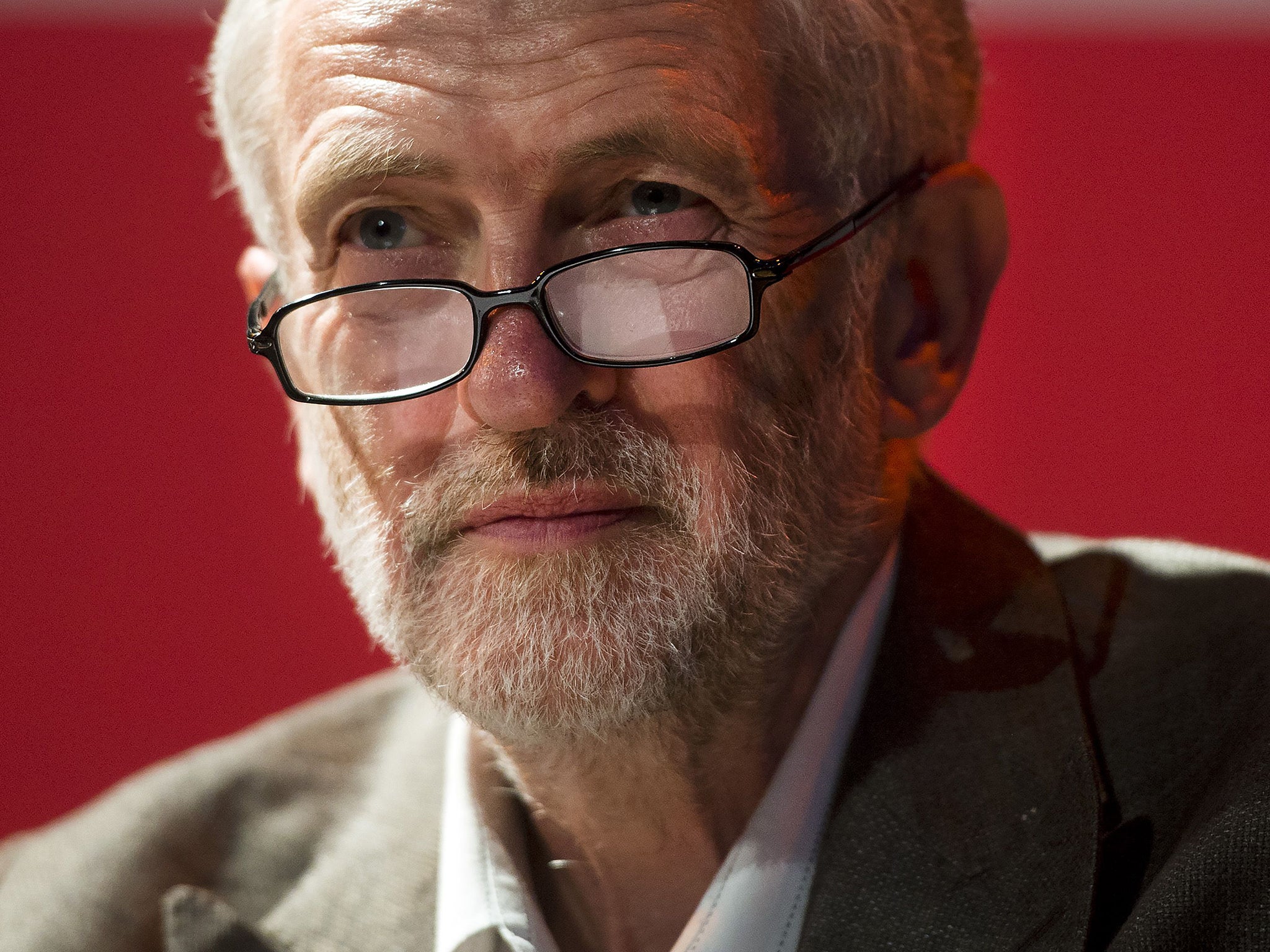Jeremy Corbyn is criticised by victims' families after failing to condemn the IRA
The sister of one IRA victim said Corbyn's refusal amounted to an “insult to all our dead loved ones"

Your support helps us to tell the story
From reproductive rights to climate change to Big Tech, The Independent is on the ground when the story is developing. Whether it's investigating the financials of Elon Musk's pro-Trump PAC or producing our latest documentary, 'The A Word', which shines a light on the American women fighting for reproductive rights, we know how important it is to parse out the facts from the messaging.
At such a critical moment in US history, we need reporters on the ground. Your donation allows us to keep sending journalists to speak to both sides of the story.
The Independent is trusted by Americans across the entire political spectrum. And unlike many other quality news outlets, we choose not to lock Americans out of our reporting and analysis with paywalls. We believe quality journalism should be available to everyone, paid for by those who can afford it.
Your support makes all the difference.Jeremy Corbyn has been criticised by families of IRA victims after failing to explicitly condemn the group.
The Labour leadership candidate was in Northern Ireland yesterday to appear on a panel at West Belfast festival Feile an Phobail. In a telephone interview with BBC Radio Ulster, Stephen Nolan repeatedly asked Mr Corbyn to condemn the IRA’s actions.
When asked if he condemned the IRA, the Islington North MP said: “I condemn all bombing, it is not a good idea, and it is terrible what happened.”
Mr Nolan repeated: “The question is do you condemn what the IRA did?”
Mr Corbyn replied: “Look, I condemn what was done by the British Army as well as the other sides as well. What happened in Derry in 1972 was pretty devastating as well.”
When the question was put to him a third time, he said: “Can I answer the question in this way? We gained ceasefires, they were important and a huge step forward. Those ceasefires brought about the peace process, brought about the reconciliation process which we should all be pleased about. Can we take the thing forward rather than backward?”
Mr Nolan again asked: “Are you refusing to condemn what the IRA did?”. At which point railway noise can be heard Mr Corbyn said that he could not hear the question because he was travelling on a train and had poor signal.
Asked the question a fifth time, he said: “I feel we will have to do this later you know”, before the line goes dead.
The Labour leadership candidate’s behaviour has been criticised by relatives of IRA victims. Ann Travers, whose 22-year-old sister Mary was shot dead by the IRA, told the Belfast Telegraph that it was an “insult to all our dead loved ones.”
She said: “I am shocked and disappointed that an MP, especially someone who hopes to win a leadership contest and lead the Labour Party into government, would find it so difficult to say five simple words, ‘Yes I condemn the IRA’.
“Any right-minded, moral, government minister shouldn’t have to think twice to condemn it.”
Colin Parry, whose 12-year-old son Tim was killed in an IRA bomb in 1993, also criticised Mr Corbyn. He said: “When I saw the nature of the interview it didn’t surprise me. I think he saw an equivalence between the British Government’s armed forced and republican terrorists which I think anyone with a balanced view in Northern Ireland could hardly agree with.”
Mr Corbyn has been criticised by opponents for appearing to have links to Irish Republicanism. He has defended inviting IRA representatives to the House of Commons in 1984 a fortnight after the Brighton Bombing.
In 1987, he also observed a minute’s silence for eight IRA members who had been killed by British military personnel.
The 66-year-old, who has been the MP for Islington North since 1983, has unexpectedly come to lead the race to become the new Labour leader.
Mr Corbyn's campaign said he had clearly and immediately condemned all violence, from all sides, in his Belfast Telegraph interview. His team said: "Northern Ireland has been through one of the most difficult and inspiring experiences of establishing peace and reconciliation, and Jeremy's approach is about continuing to move forward on that basis. He is opposed to all violence, which is why he backed talks to achieve peace, when others refused to."
Join our commenting forum
Join thought-provoking conversations, follow other Independent readers and see their replies
Comments